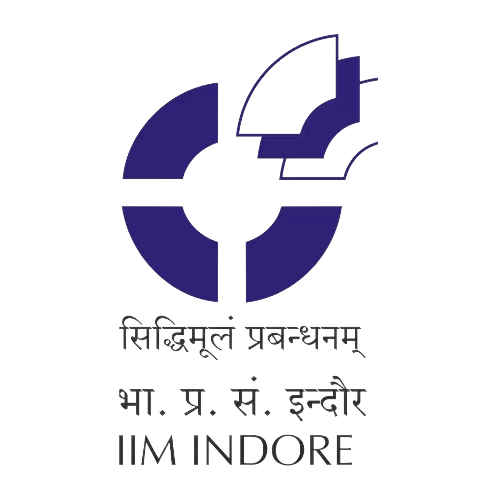Table of Contents
MSc in Geology Introduction
MSc in Geology is a two-year postgraduate degree where students learn about the solid earth and the changing process associated with it. Students also learn about ore petrology, geophysics, mineral fuel resources, economics, geology, etc.
The pg degree in MSc in Geology is a very comprehensive course for those who are interested in studying Earth and its process along with the laws of physics. MSc in Geology serves as a perfect combination for those who want to study geography as well as physics together.
In this article, we are going to discuss the top colleges offering MSc in Geology, fee structure, course syllabus, and more.
MSc in Geology Highlights
| Full-Form Course Name | Master of Science in Geology |
| Eligibility | BSc in geology as an elective or minor subject |
| Percentage required | 50% in bachelor's degree |
| Degree level | Postgraduate degree |
| Admission process | Offline or onlinecuet |
| Entrance exam | CUET, LPU NEST, CUCET, MUET |
| Course fee | INR 27,000 to INR 67,000 |
| Salary | INR 2,80,000 PA to 4,00,000 |
| Top job profiles | Environmental Scientists, Mineral Surveyors, Hydrographic Surveyors, Geological Oceanographers, Seismologists, etc. |
MSc in Geology Admission Process
The admission of MSc in Geology into different colleges offering this postgraduate degree has certain eligibility criteria that we need to satisfy before taking admission to the college.
- For this, we either get the application form from the college website or visit the campus in person. But with growing technology and digitization, the application form is available on the portal itself.
- After this, the student needs to register in the particular portal. After registering the student gets a particular account login credential which a student needs to remember.
- Using these credentials the student logs in to the account and fills the application form with utmost care. It is advisable to cross-check every detail and document that they put in the application form before submitting.
- After filling out the application form and submitting it the concerned college of the conducting body releases its admit card. The admit card is released only after 1 to 2 weeks before the exam.
- After giving the exam every college offering this course Releases their cutoff marks and answer key. The student cross-checks their answer with the given one and looks out for which college they qualified.
- After checking for college the students qualify, and the candidates fill out their counseling form. The concerned college sees if the candidate is eligible for their course, they send a call letter and an interview is conducted.
- After the interview, finally, the selection of the candidate is done. The selection is the final process of the admission round.
- Apart from entrance exams, admission is also merit-based. This means that the concerned person needs to score between a range of 50-55% or above with Bsc in geology as their major or minor at their bachelor's level.
MSc in Geology Entrance exam
- CUET: CUET or Central Universities Entrance Exams are conducted for various pg and ug as well as research programs for students seeking admission in the above-mentioned courses. The conducting body of this exam is NTA ( National Testing Agency). The exam is approved by UGC ( Universal Grants Commission) and is to be conducted by various central universities and colleges. The exam is CBT based. The exam pattern is an objective type that is McQ based.
- BHU PET: BHU PET or Banaras Hindu University Postgraduate Entrance Exam is conducted to offer student admission into various postgraduate and research level exams. The exam is generally conducted by the university itself. The exam mode is online.
- JAM: JAM or Joint Admission Test For Masters is conducted for opting for a master of science or another postgraduate program in the field of Msc. The exam is conducted and accepted by all IITs, all NITs, and IISC. It's a CBT-based test conducted for three hours with English as the medium of the paper.
- LPU NEST: The LPU NEST or Lovely Professional University exam is conducted to offer students various postgraduate entrance exams like Msc. It also offers admission for engineering and MBA courses as well. The conducting body of this exam is Lovely Professional University. There's no negative marking. Students are awarded 4 marks for every correct answer.
MSc in Geology Syllabus
MSc in Geology is a 2-year postgraduate program divided into 4 semesters. The course consists of core subjects that offer students a depth of solar earth and its origin. Given below is the list of the course.
- Metamorphic Petrology
- Sedimentary Petrology
- Stratigraphy and Palaeontology
- Remote Sensing and Geomorphology
- Economic Geology
The course MSc in Geology highly covers the environment, and changing processes associated with it along with scientific phenomena. The comprehensive course helps students understand what solar earth is and the changing process associated with it. Given below is the list of subjects offered to students studying MSc in Geology.
| Semester 1 | Semester 2 |
|---|---|
| Geochemistry | Sedimentary Petrology |
| Structural geology | Metamorphic Petrology |
| Paleontology | Igneous Petrology |
| Mineralogy, Crystal Optics & X-Ray Crystallography | Geomorphology, Remote Sensing |
| Geochemical Thermodynamics | Mining Geology |
| Lab practical | Lab practical |
| - | Fieldwork |
Given below is the list of syllabus offered in the second year:
| Semester 4 | Semester 5 |
|---|---|
| Solid Earth and Exploration Geophysics | Geological and Geochemical Prospecting |
| Statistical Methods in Geology | Mineral Fuel Resources |
| Elective for Project | Economic Geology |
| Engineering & Groundwater Geology | Stratigraphy and Indian Geology |
| - | Elective for Project |
MSc in Geology Top Colleges in India
Students all over the country who are interested in the field of geology opt for some of the renowned colleges. Listed below are the top colleges in India for MSc in Geology:
| Serial Number | Colleges in India |
|---|---|
| 1. | St. Xavier's College |
| 2. | Fergusson College |
| 3. | Hansraj College |
| 4. | Presidency College, Chennai |
| 5. | Queen's Mary College |
| 6. | Miranda House |
| 7. | St Wilfred's PG College |
| 8. | University of Madras |
| 9. | MG Science Institute |
| 10. | Manipal Institute Of Technology |
MSc in Geology Top Colleges Abroad
Students also pursue MSc in Geology degrees from colleges abroad. The colleges abroad provide a wide spectrum of opportunities for an MSc in Geology. Given below are the colleges providing a degree in MSc in Geology:
- The University of British Columbia
- University of Cambridge
- University of Oxford
- Yale University
- McGill University
- University of Birmingham
- University of St Andrew
- The University of Melbourne
- University of Aberdeen
- University of Tasmania
- Royal Holloway, University of London
- University of Toronto
MSc in Geology Scope
- The scope and opportunities of students opting for an MSc in Geology are varied. Students after graduating from this course get into fields like the oil and mine industry, the ore industry, and much more.
- MSc in Geology helps out students in getting along with diverse courses including technology that are associated with geology.
- Opportunities for students opting MSc in Geology also help them to get along in the field of research or lab assistants.
MSc in Geology Higher Studies
Students after completing their graduation in MSc in Geology can also opt for higher studies in the area of research. All over the world, there are top-notch research labs where students can work. The scope of higher studies is listed below:
- M.phil or master of philosophy is a two-year pg degree that students can opt for. The M.phil degree is based on human life and their beliefs along with prevalent techniques and technology. Teacher, Speaker, Social Service Worker, Editor, Research Assistant, Consultant, Assistant Professor, and Scientist are some of the jobs which a student can opt for after getting an M.phil degree in geology.
- Ph.D. is a 3 to 5-year program that a student opts for after completing their master's. The doctoral program deals with research methods and specializations in the field of microbiology, psychology, geology, and more subjects. Consultants, Researchers, Professors, and R&D Industry Experts are the various fields in which a Ph.D. scholar can take on jobs.
- Any kind of certification course in geology.
MSc in Geology Jobs
The jobs are various after getting a degree in MSc in Geology. Listed below are the jobs available:
- Project Assistant
- Geological Technologists
- Geoscientists
- Assistant Chemist
- Hydrogeologist
- ONGC Chair Professor.
Listed below are the government jobs that a graduate can get in the field of MSc in Geology:
| Job roles | Salary |
|---|---|
| Assistant Professor | INR 3 LPA |
| Field Assistant | INR 4.5 LPA |
| Project Coordinator | INR 5 LPA |
Listed below are the job opportunities for graduates in the field of private sector:
| Job roles | Salary |
|---|---|
| Geologist | INR 9.5 LPA |
| Hydrologist | INR 8.5 LPA |
| Mining and Geological Engineer | INR 6.5 LPA |
| Environmental Officer | INR 4.5 LPA |
| Geophysicist | INR 10 LPA |
MSc in Geology Salary
After getting a degree in MSc in Geology as we discussed earlier, a student can get a job in various fields. let's take a look at what are jobs offered to an MSc in Geology and what salary they are expecting:
| Job roles | Entry-level salary (LPA) | Medium-level salary (LPA) | Maximum level salary (LPA) |
|---|---|---|---|
| Geotechnical engineer | 2.5 | 5.9 | 15.1 |
| Engineering manager | 4 | 7.7 | 16.2 |
| Environment officer | 2.3 | 6.6 | 13.3 |
| Research Analyst | 2.6 | 8.2 | 18.4 |
| Construction manager | 2.5 | 10.3 | 16.2 |
MSc in Geology Recruiters
Many companies come to recruit graduates with MSc in Geology. Given below are the top famous recruiters recruiting geology graduates:
- Geological Survey of India (GSI)
- Central Ground Water Board (CGWB)
- Hindustan Zinc Ltd.
- Minerals and Metals Trading Corporation (MMTC)
- Coal India
- Indian Bureau of Mines (IBM)
- Indian Space Research Organization (ISRO)
- Oil and Natural Gas Commission (ONGC)
- Bharat Petroleum Corporation Limited (BPCL)
- Mineral Exploration Ltd.
MSc in Geology Conclusion
In the end, I wish to conclude that this field helps people to have an idea about not only their planet but also helps them to understand what are the scientific phenomena associated with it.
It also helps to be a responsible individual and work towards the sustainability of the environment. It also helps to have in-depth knowledge and understand why and how the SDGs or MDGs develop.
MSc in Geology is an exciting field for those who have an interest in Earth's natural processes like ore formation, and mineral formation, and their roles in daily life and industries as well.
Frequently Asked Questions about MSc in Geology
Q. Why do we study MSc in Geology?
Ans. Studying MSc in Geology will help to understand Earth's process, the natural resources, and its scientific phenomena. It is studied through the combination of biology, physics, chemistry, and geography.
Q. Why is geology engaging?
Ans. Geology is engaging because it involves the use of submarines and satellites to study the formation of volcanoes, the formation of rocks, patterns of changing rivers, and more with specialized instruments.
Q. What is the course fee for MSc in Geology?
Ans. The course fee for geology is between INR 27,000 to INR 67,000. One thing we need to keep in mind is that this course fee varies according to location, campus life, and placement as well as facilities and faculties.
Q. What are the skills that a student in MSc in Geology should possess?
Ans. There are various skills amongst which problem-solving and excellent technical skills are two of them which are required for students to possess. Given below is the list of skills :
- Complex Problem-Solving Skills
- Strong Analytical Skills
- Good Technical Skills
- Team Management
- Critical Thinking
- Strong Risk Assessment Skills
Q. Is bsc in geology better or MSc in Geology better?
Ans. Talking about this, both degrees will fetch you the scope and opportunity. The only difference is that certain higher-level positions are only offered to see your qualifications. So if you have a bachelor's degree along with a master's degree your chances of standing out and holding that position becomes quite easier.
Q. Is MSc in Geology from a distance valid?
Ans. Yes, MSc in Geology is valid only if the particular institute is approved under UGC-DEB.
Q. Who employs applied geologists in India?
Ans. Various government and private sectors employ applied geologists in India. These include departments related to mining, energy, urban development, water supply and conservation, engineering, and public health.
Q. What are the qualifications required to become an applied geologist?
Ans. To become a geologist a person needs to have a master's degree in environmental geology or a multidisciplinary subject of it. A certification course of the same can be also counted.


















